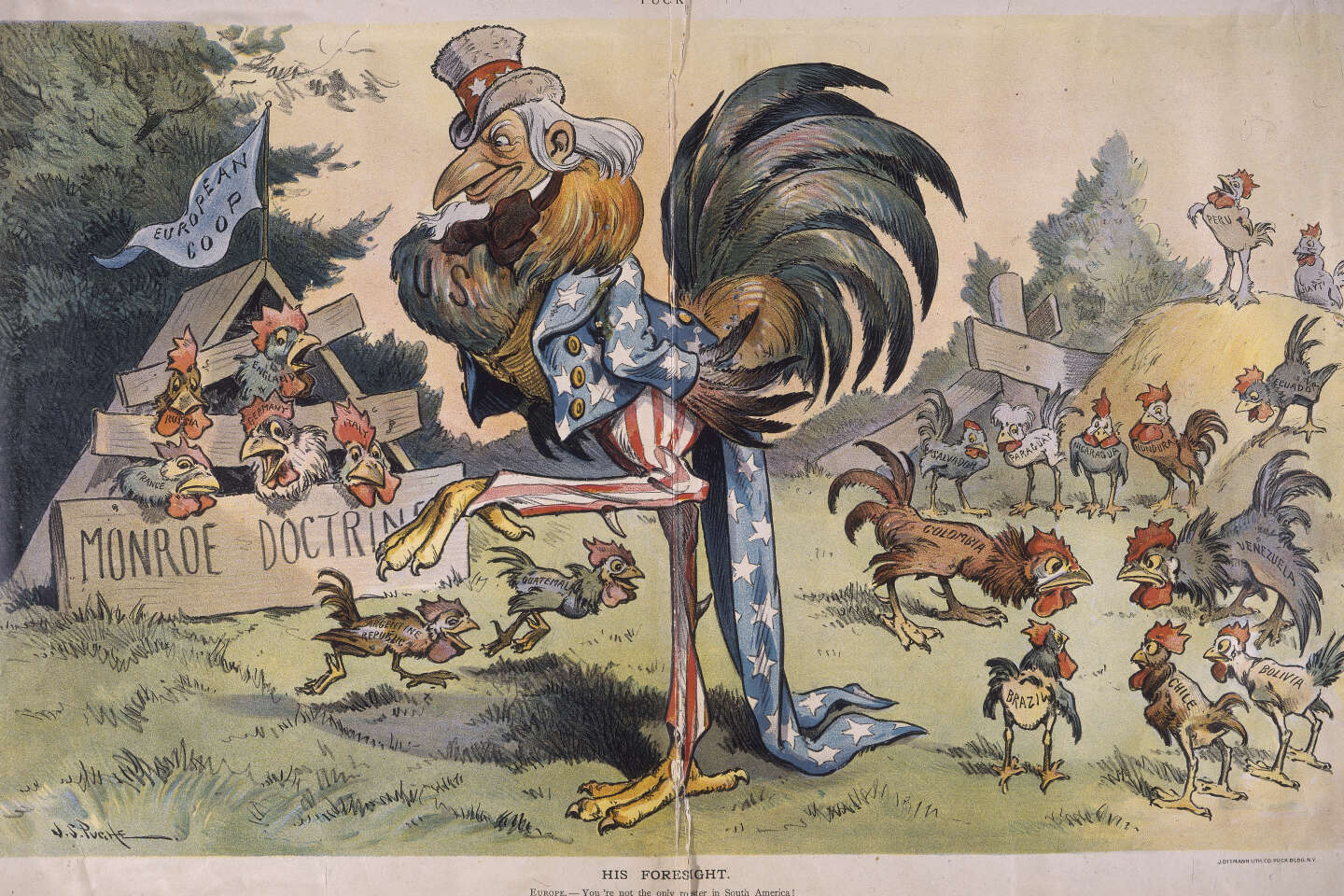


On December 2, 1823, US President James Monroe (1817-1825) delivered a speech condemning all European interference in American affairs, famously known as the Monroe Doctrine. In 1904, Theodore Roosevelt (1901-1909) added a "corollary," offering an expansionist interpretation of this doctrine that paved the way for US interference in Latin America.
Jean-Jacques Kourliandsky is director of the Observatoire de l'Amérique Latine (Latin America Observatory) at the think tank Fondation Jean Jaurès, and a member of the editorial board of the magazine Nouveaux Espaces Latinos ("New Latino Spaces").
In what context did President Monroe give his famous speech in 1823?
The United States was not the power it is today. It feared the interference of the great European empires, particularly the United Kingdom, whose troops had occupied and set fire to the city of Washington in 1814, France, which had attempted to retake [the former French colony] Saint-Domingue [present-day Haiti] during the expedition [launched in December 1801], and Spain, which intended to recover its emancipated American colonies. For the entire American continent, Europe represented a military threat against which Monroe's speech appeared defensive. The Monroe Doctrine was "America for Americans", not for Europeans.
By contrast, the Roosevelt Corollary to the Monroe Doctrine of 1904 was offensive. This time, it was "America for the United States." It came at a time when the United States had already annexed half of Mexico [during the Mexican-American War of 1846-1848] and driven Spain out of the Americas (Cuba, Puerto Rico) and the Pacific (Guam, the Philippines) [in 1898]. Washington annexed the Panama Canal Zone [from 1903 until its return in 1999] and stepped up military interventions in the region, notably in Central America, Haiti and the Dominican Republic. Later, the Cold War extended the Roosevelt Corollary to the rest of the world.
You have noted a third stage of the doctrine...
In the wake of the September 11 attacks, a document from the George W. Bush administration, made public in September 2002, justified the invasion of Afghanistan, of Iraq [in March 2003] and other preemptive interventions whenever the United States feels threatened.
When did Latin Americans start to show concern about US interventionism?
Washington's imperialist policy in the region did not begin with the Monroe Doctrine in 1823, as is anachronistically stated today, but more than 20 years later, during the war against Mexico. In a famous editorial [in The United States Magazine and Democratic Review], published in 1845, journalist John L. O'Sullivan emphasized the "manifest destiny" of the United States to "overspread the continent" with xenophobic justifications bordering on racism: Since the Mexicans are incapable of developing the lands they occupy, it's up to us to do it. The Mexican-American War highlighted the unequal balance of power, which the US would rely on to carry out a form of colonization – annexationist in the case of Mexico, and imperialist on the rest of the continent.
You have 70% of this article left to read. The rest is for subscribers only.
